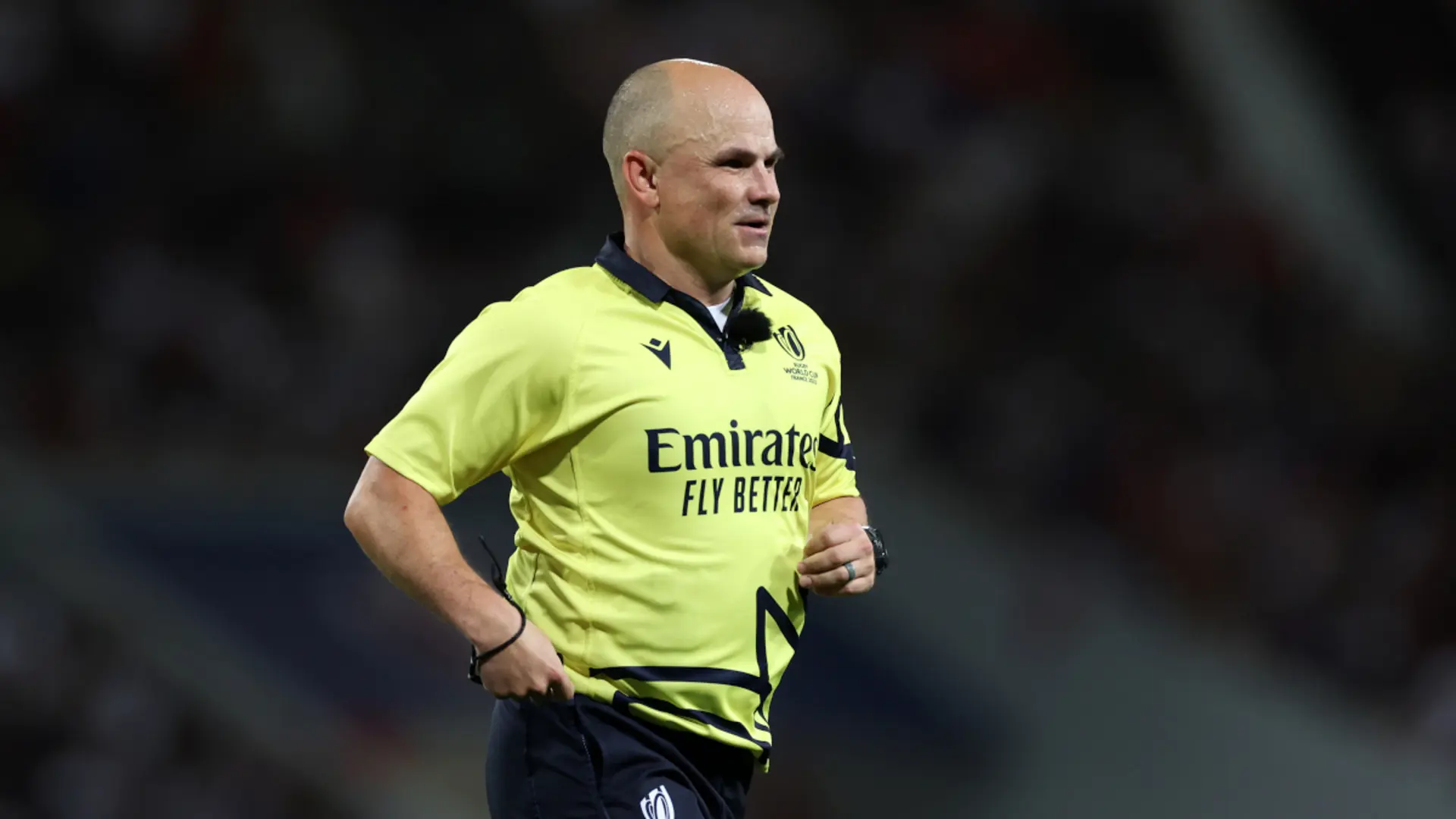Peyper sympathetic to Irish gripes but 'it shouldn't have got there'

Springbok laws consultant Jaco Peyper says that if the call from the referee and TMO that allowed Cheslin Kolbe’s try against Ireland had been against the South Africans, they would have felt aggrieved. However, he didn’t feel it should have got that far, because there was a prior infringement that wasn’t picked up by the referee.
Peyper was not recruited by Bok head coach Rassie Erasmus primarily to answer questions from the media about contentious calls after international matches, with his brief being more directed towards keeping the players onside when it comes to the law interpretations, but on Monday at a media conference at the team hotel in Umhlanga Rocks he did a good job of it.
He is of course on the other side now, meaning he is attached to a team, but listening to the former top referee speak, it prompted thoughts that explaining the big calls is something that should be done officially by those who are still referees.
Given that he is now working for the Boks, you’d naturally expect Peyper to align with the team that now employs him. Yet he was honest when he admitted that some of the calls were close, but in the end they were correct based on the facts or the processes that referees are required to follow.
That included the try that Ireland wing James Lowe scored in the 58th minute that was chalked off by the TMO, Ben Whitehouse.
Whitehouse asked referee Luke Pearce to have a look at the ruck where the Irish turned over possession just inside the Irish half and check how the ball had come out on the Ireland side. The conclusion was that Ireland replacement hooker Ronan Kelleher had hooked the ball back with his foot while lying on the ground.
JUSTICE WAS DONE
Ultimately though, regardless of the rights or wrongs of the call, he feels justice was done as Pearce had missed a prior infringement that should have resulted in a scrum for the Boks.
“A player going off his feet, that would be my understanding of it (that call). But if you look at that, I think 10 seconds earlier there was a clear knock-on by Casey (Ireland scrumhalf Craig Casey) behind the ruck, so I think we shouldn’t have got there,” said Peyper.
And Peyper also reckons that there were several times in the loose scrums that the same thing happened, which would have been picked up by the TMOs and alerted them to it. When the try was scored, they would have checked to ensure it hadn’t happened in that important and potentially decisive play.
“The TMO has the same ability as the coaches, he’s got eight angles at the same time and would have seen a few of those types of actions in the lead-up in different rucks,” he explained.
“It’s got to be factual based. If you get points scored from that, they’re going to have to look at that turnover. Factually, the player is off his feet and he turns over possession. Sometimes you don’t want to step in touch but you’re in touch.
“Sometimes you don’t want to make that turnover when you’re off your feet, but you still do it, even though you don’t mean it. Factually it is off his feet when the turnover is made. So the try can’t be scored.
“Then it becomes a debate whether it should be a penalty to Ireland because he was touched to the neck. That is debatable. Maybe the officials were trying to stay consistent because a few minutes earlier there was exactly the same scenario on Kwagga Smith which was played through, so maybe that’s just an attempt to be even-handed.
“That’s all in the game of rugby, you can’t referee everything, but you can’t leave stuff that’s high impact (potentially on the result),” added Peyper.
BOKS WOULD ALSO HAVE FELT AGGRIEVED
When it came to the incident where Lowe knocked the ball back into play when fielding a penalty line kick from Handre Pollard on the touchline and Cheslin Kolbe came through and scored a try that turned a 13-8 lead into 20-8 after 66 minutes, Peyper said that if the boot had been on the other foot the Boks would also have been upset.
But as it was impossible to tell whether Lowe had grounded his foot in touch while the ball was in contact with him, the referee’s on-field decision had to be backed. And that was that a try had been scored.
“If they couldn’t prove with facts that he touched the ground, you have to stay with the on-field decision. If we (the Boks) were on the other side, we would have felt aggrieved but there was a clear process that was followed.”
Advertisement
